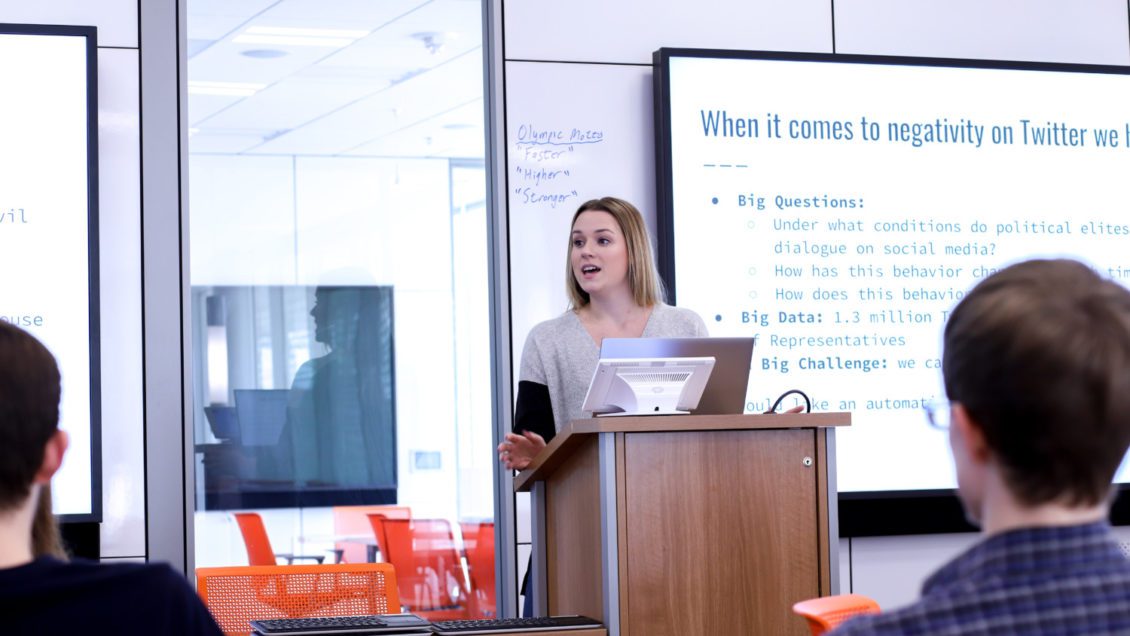Artificial intelligence (AI) has the potential to revolutionize the world as we know it. For many, the term AI evokes imagery of science fiction, yet in reality, this new form of technology has wide ranging applications that are incredibly beneficial to society. Whether it is through improving efficiency, accuracy or intelligent decision making across industries, this innovative new technology has improved rapidly over the last two decades. The Watt Family Innovation Center partnered with IBM in order to bring IBM’s artificial intelligence computer system named Watson to campus to explore AI use cases.

The partnership resulted in the IBM Watson in the Watt Corporate Creative Inquiry project led by Dr. Hudson Smith in the Watt Family Innovation Center and Dr. Kuang-Ching Wang from the Holcombe Department of Electrical and Computer Engineering. The project recruits some of the brightest and most creative students from majors across campus. Currently, the students are working with nine research teams to help faculty incorporate IBM Watson’s technology into their research or research analyses. These studies vary from using AI to understand political discourse on social media to combing through millions of Reddit comments to understand trends on the internet to predicting the sex of chicken eggs.
Thus far, the largest research study the Creative Inquiry project has collaborated with is the Analysis of Agricultural Drone Images with the Watson Visual Recognition research team led by Dr. Joe Maja, a research scientist at Clemson’s Edisto Research and Education Center. The purpose of the study was to, “analyze drone recordings of ornamental plants in order to try and figure out which ones were healthy and which plants needed water,” Smith said. The Creative Inquiry team assisted in this research by training Watson to analyze the drone images in order to differentiate between healthy and unhealthy plants.
Watson was able to take the images, convert them to numerical data and then analyze the data to identify healthy and unhealthy plants. This eliminated the risk of human error and alleviated the research team’s workload by automating repetitive tasks.
When the Creative Inquiry project is not assisting with other teams’ research, they meet to learn more about using IBM Watson, research AI in general and discuss the future of AI in society. Some of the students in the project hope to gain an internship with IBM. The hands-on experience with Watson, including the application of Watson to research challenges gives these students an advantage over other potential candidates.
This Corporate Creative Inquiry project is supported by gifts from IBM. This support plus presentations at three research conferences this year is evidence of the team’s excellent work. A recent increase in funds from IBM will allow the Creative Inquiry team to assist in even more projects by implementing Watson in their research. Therefore, Smith plans to recruit more students in order to take on new AI projects. Through this Creative Inquiry team’s work, they hope to show how to both implement and understand AI more completely.
This story was originally featured in Decipher 2019– Clemson’s Creative Inquiry Magazine.
Get in touch and we will connect you with the author or another expert.
Or email us at news@clemson.edu

